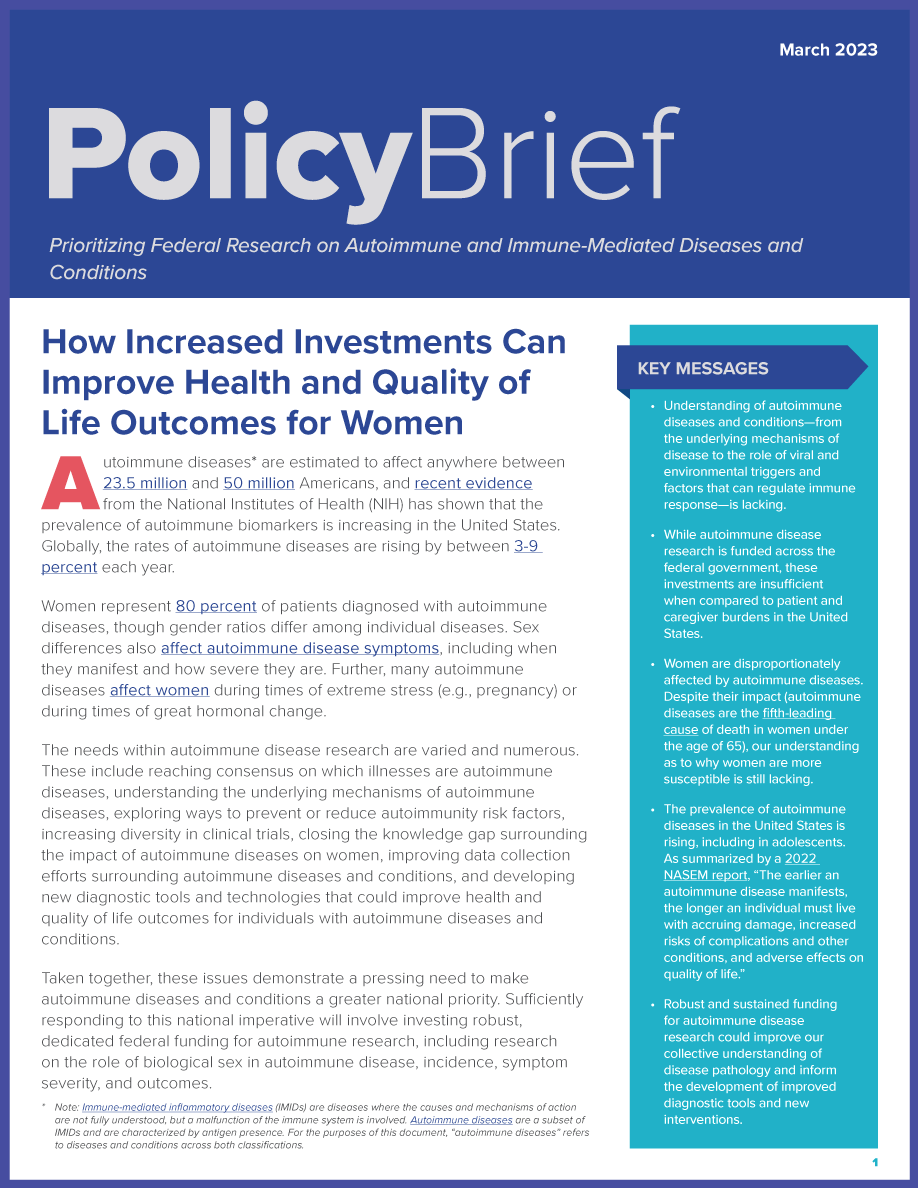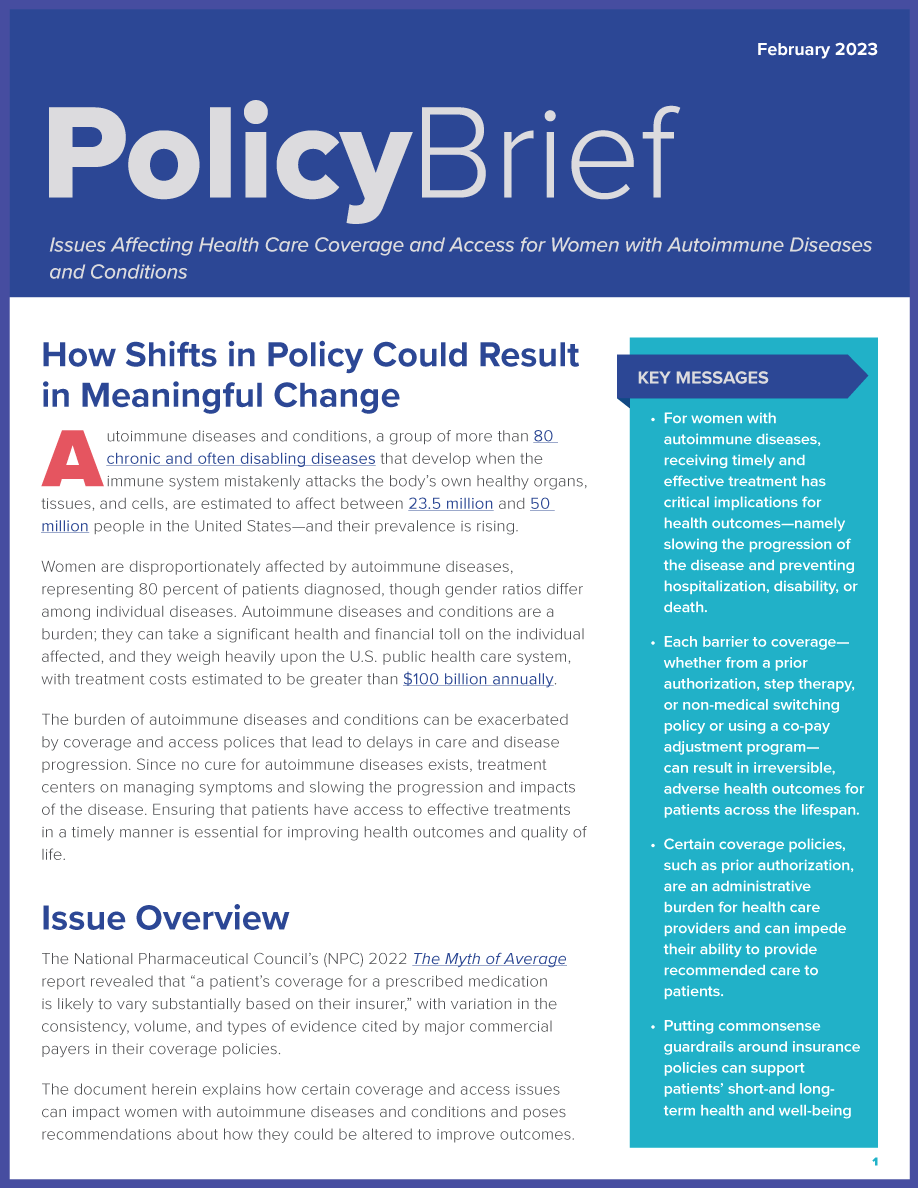Autoimmune diseases are estimated to affect anywhere between 23.5 and 50 million Americans, and recent evidence has shown that the prevalence of autoimmune biomarkers is increasing in the United States, with a disproportionate impact on women. The needs within autoimmune disease research are varied and numerous –ranging from a need to reach consensus on which illness are autoimmune diseases, what the underlying mechanisms of autoimmune diseases are, and how to prevent or reduce autoimmunity risk factors.
Taken together, these issues demonstrate a pressing need to make autoimmune diseases and conditions a greater national priority. The Society for Women’s Health Research developed the policy brief, “Prioritizing Federal Research on Autoimmune and Immune-Mediated Diseases and Conditions,” to discuss the state of autoimmune disease research funding and highlight how robust and sustained support for this research could improve our understanding of disease pathology and inform the development of improved diagnostic tools and new treatments and interventions.
Download the Policy Brief

